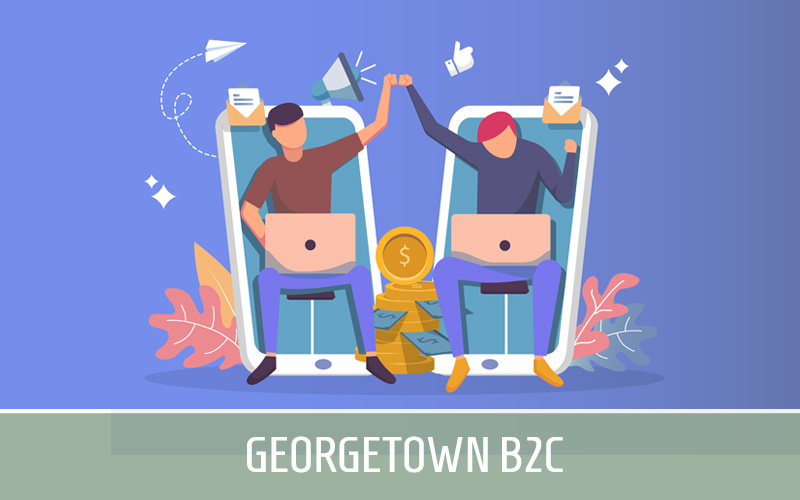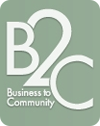For many businesses, referrals are gold: when one of your existing customers refers your company to someone they know, they’re not only giving them your name or contact details but a warm endorsement of your products or services. In a world where we’re constantly inundated with marketing, the edge you get with a referral is invaluable. For some businesses, referrals from their existing customers to new ones is the lifeblood of their growth, accounting for most of their new business leads. But as important as referrals are, many businesses are very casual about getting them. Referral marketing is a structured approach to encouraging or incenting your existing customers to recommend your business to the people they know and here’s how you can successfully leverage it in your business.

I don’t have time to read this, give me the short version …
What is Referral Marketing?
According to Wikipedia:
Referral marketing is a process to encourage and significantly increase referrals from word of mouth, perhaps the oldest and most trusted strategy. This can be accomplished by encouraging and rewarding customer, and a wide variety of other contacts, to recommend products and services from consumer to B2B brands, both online and offline.
While the psychology of referral marketing lies deep within our primitive souls, but there are two easily understood aspects: First, there is a self-serving benefit of giving a referral because it shows that the referrer did well in finding a particular supplier and wants the referee to get that same benefit. Second, referees benefit from collective liking: the premise that if the referred company did a good job for the referrer (and others) then they’ll do a similarly good job for them.
As per the Wikipedia definition, referral marketing has historically been based on word of mouth, but with the ubiquity of social media it is becoming commonplace for people to visit their preferred social media platform and ask their social networks for recommendations for the products and services they need.
The Keys to Converting Referrals
How you respond to received referrals is very important. Referred leads come with a vote of confidence from the referrer so are typically more likely to convert into paying customers than cold leads. When you receive a referral:
- Respond Quickly – the referee has many options and people can be impatient waiting for a response, especially if their need is urgent or priority. Even if you’re busting between meetings when referral comes in, find two minutes to reply. Let the referee know that you got their message and that you’ll respond to them more fully later.
- Thank the Referrer – While it might not take much to pass someone’s contact information along, the vote of confidence that goes with it is huge. Regardless of how the referral pans out, take time to thank the referrer for keeping you in mind and for the confidence of referring you.
- Do a Good Job – Yes, you should always aim to do a good job. But if you mess up with a referral, you’re also potentially making the referrer look bad. They might be less likely to refer you in the future if you make them look bad.
Getting More Referrals in Your Business
In general, satisfied customers and clients are more than happy to pass along your name and contact information if they like and trust you. But if you take a passive approach to getting referrals then you’re relying on other people to come across referral opportunities, think of you or your business, and refer you. While that does happen, there are ways to help that happen more often.
Stay Top of Mind
Staying top of mind with potential referrers is the starting point to getting more referrals: if people are thinking about you and your brand more often then they’re more likely to think of you when referral opportunities come up. Some ways you can stay top of mind:
- Call or Visit Your Existing Customers – Allocating some time to specifically reach out to your existing customers can help keep you top of mind. Don’t use the contact opportunity to sell otherwise they might start avoiding you. Rather, check in on how things are going, ask how their business is doing or find out what’s new in their world.
- Share Content on Social Media – Whether it’s Facebook, LinkedIn, Instagram or another social media platform, most people engage with social media at some point on most days. Even seeing your brand might help get a hit at just the right time when a referral opportunity comes up.
- Sharing Content Through Email Newsletters – Email newsletters can be another great way to make a brand impression, especially calling or visiting existing customers isn’t practical. Sharing special offers, news, helpful content can help provide value to your emails, but be careful about what you’re emailing and how often because people can unsubscribe if you do it too much or they don’t value your content.
Incentivizing Your Referral Marketing
Expecting people to refer you because they know and like you is one thing. Giving them a reason to refer you is another!
Incentivizing referrers can be a very effective way to increase the effectiveness of your referral marketing program. Here are some common ways that businesses incent their customers to refer them to family, friends and colleagues:
- Send a Thank You Card – Although not a huge incentive, a simple thank-you card can be a sentimental reward for people who refer your services. Handwritten notes add a great personalized touch, but services like Send Out Cards automate the process and allow you to conveniently add in gifts, gift cards and other rewards.
- Reward the Referrer & Referee – A popular incentive scheme is for both the referrer and referee to receive some sort of reward like a gift card. The referrer is rewarded for their behaviour and you start the relationship with the referee by giving them something, which increases the chance they’ll want to give you something (like their business) back. Making sure they both know they’ll each get something creates a good feeling of generosity.
- Free (or Discounted) Products or Services – If practical, offer the referrer free or discounted products or services from your business. They’re already an existing customer so have demonstrated a need for whatever you sell, so reward them with free or discounted products or services. For example, if you’re a landscaping company and you regularly cut someone’s grass, throw in a free weed-n-feed treatment as a reward for a successful referral.
When you’re thinking about what rewards to offer, be mindful of the lifetime value of that referral and make sure your reward doesn’t make acquiring that customer too expensive!
And yes, incentivizing is a real word. I looked it up.
Intentionally Good Marketing in a Minute
Referrals can be a great way to generate leads and new customers for your business. Yet as lucrative referrals can be, most business don’t take a structured approach to referral marketing. Keeping your business top-of-mind and offering rewards for one or both referrer and referee can help you increase the number of referrals you get. Given how much more likely referred leads are to convert to paying customers, an intentional approach to referral marketing can be very effective in growing your business.
If you’re looking to grow your business through referral marketing but don’t know where to start, we’d love to help! With an effective marketing strategy and the right types of marketing services, we can help you find more customers and increase sales. Call or email us today and let’s get started!
Other Posts You Might Like
If you liked this post, here are a few others you might enjoy:

